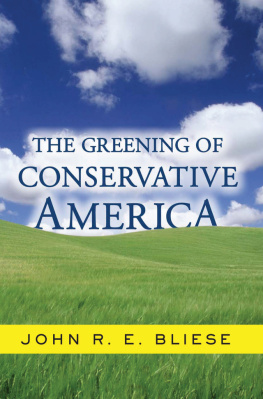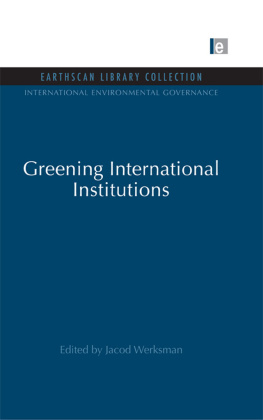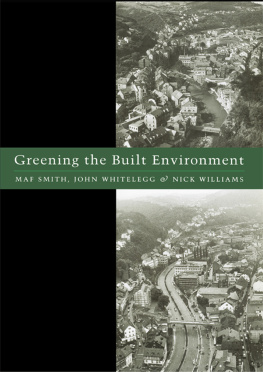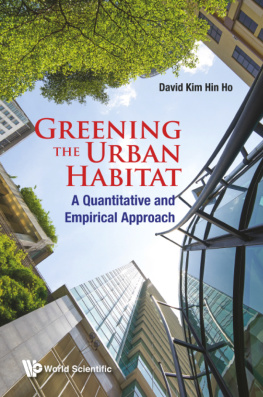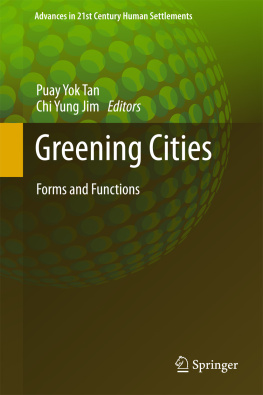First published 2002 by Westview Press
Published 2018 by Routledge
711 Third Avenue, New York, NY 10017, USA
2 Park Square, Milton Park, Abingdon, Oxon OX14 4RN
Routledge is an imprint of the Taylor & Francis Group, an informa business
Copyright 2002 Taylor & Francis
All rights reserved. No part of this book may be reprinted or reproduced or utilised in any form or by any electronic, mechanical, or other means, now known or hereafter invented, including photocopying and recording, or in any information storage or retrieval system, without permission in writing from the publishers.
Notice:
Product or corporate names may be trademarks or registered trademarks, and are used only for identification and explanation without intent to infringe.
A Cataloging-in-Publication data record for this book is available from the Library of Congress.
ISBN 13: 978-0-8133-4032-6 (pbk)
Publisher's Note
The publisher has gone to great lengths to ensure the quality of this book but points out that some imperfections from the original may be apparent.
Conservatives should be conservationiststhat seems logical enough, or so I always thought. As environmental consciousness came to the forefront in the late 1960s and early 1970s, the Republican Party seemed to be generally on the right track, building on the heritage of Theodore Roosevelt. Most of the landmark environmental laws were passed with broad bipartisan support, and many were signed into law during the Nixon and Ford administrations.
Just a few years later, however, the newly elected Ronald Reagan made several terrible appointments to key environmental positions. That was not what I had in mind. And that is when I, and many other Republicans, began joining the Sierra Club and other leading environmental organizations. I could at least show support for the environment by joining and making an occasional donation.
Then came the near disaster of 1995, which occurred after the Republicans gained control of Congress. The situation was most dire in the House. Even though the Contract with America did not mention the environment, the House leadership launched an unprecedented attack on virtually every environmental law on the books. There was no attempt at all to improve these laws, only to weaken them.
This was clearly not what they had been elected to dopoll after poll showed that Republican voters opposed their party on environmental policy and overwhelmingly favored stronger environmental laws.
Voters were clearly right and the Republican leaders were clearly wrong. Although they claimed to be conservatives, their attacks on the environment were, in fact, the very opposite of conservatism. They were violating some of the most important principles of the conservative political philosophy.
There wasand still isa huge discrepancy between the anti-environmental agenda of many Republican politicians and the opinions of Republican voters. And there is an equally huge discrepancy between the conservative political philosophy and the anti-environmental antics of these politicians, despite the fact that they call themselves conservatives.
But what, then, should be the conservative approach to environmental policies? What conservative principles are important here? What kinds of policies do those principles suggest as effective approaches to protecting our environment, conserving our resources, and preserving our natural heritage? When I searched, I found very little in the literature that even considers those questions. So, I decided to try to develop an answer. I wrote a series of articles on a conservative environmental agenda, and this book is the final result.
The public debate on the environment includes several attacks on environmentalists that are now standard fare: that environmentalists are opposed to our capitalistic system, that they are nothing more than prophets of gloom and doom, and that protecting the environment is harmful to the economy. The only problem with these charges is that they are dead wrong. A fundamental assumption about conservatism is that it is supposed to back up whatever the business community wants. But the principles of the conservative political philosophy show clearly that it is not a cover for greed and irresponsibility and it does not justify victimizing the public (e.q., with polluted air and water) to maximize profits.
The works of the great scholars and thinkers who developed the conservative political philosophy for our time include several fundamental principles that are relevant to environmental policy issuesand they all support environmental protection. They often suggest policies that are rather different from the ones the liberals and bureaucrats have given us. But the policies they support would be effective in protecting the environment, in conserving our natural resources, and in preserving nature.
In this book you will find a refutation of the fallacies and misconceptions that play a major role in the anti-environmental rhetoric. You will find a discussion of several principles of conservatism that are important for environmental policy, And you will find an application of those principles to several major issues, to see what kinds of policies the conservative philosophy might support.
The policies presented here are meant to suggest illustrations of the kinds of thinking conservatives should be doing on environmental issues, I am not, in other words, making any attempt to solve all of our environmental problems. I am only attempting to demonstrate that there can be and should be a positive conservative environmental policy agenda. As Russel Kirk, one of our "founding fathers," once wrote, "Nothing is more conservative than conservation."
John R. E. Bliese
C ONSERVATIVE ENVIRONMENTALIST" is not an oxymoron. That it is now widely believed to be a contradiction in terms is the reason for this book. Conservatism is a venerable political philosophy that was developed for our time by such sterling minds and principled personalities as Russell Kirk, Richard Weaver, Frank Meyer, Friedrich Hayek, Leo Strauss, and Willmoore Kendall, to name just a few of the earlier authors. These scholars were not themselves "environmentalists" in today's sense, for most of their works were produced in the years before our environmental problems became acute. But if you read their works, you will find that the principles of the conservative political philosophy that they developed clearly support environmental protection. That is, of course, what you would expect. Conservatives ought to be in favor of conserving things: our cultural heritage, our civilization, our basic political and social institutions that established our freedomas well as our natural heritage, our natural resources, and our planet.
Unfortunately, over the past thirty years and more, conservatives have contributed very little that is positive to the analysis of our environmental problems or to the formation of environmental policies. Conservative scholars have taken virtually no part in the public debate over these issues. A search through the contents page of, for example, Modern Age or Intercollegiate Review will yield virtually nothing on conservatism and the environment. (Both journals recently published articles of mine, so there is apparently no reluctance on the part of the editors to cover the environment. But conservative scholars have produced almost nothing on the subject.) The one exception at the scholarly level is a small group of libertarian economists who advocate "free market environmentalism." Much of this work has been done by two organizations headquartered in Bozeman, Montana: the Political Economy Research Center (PERC) and the Foundation for Research on Economics and the Environment (FREE).


